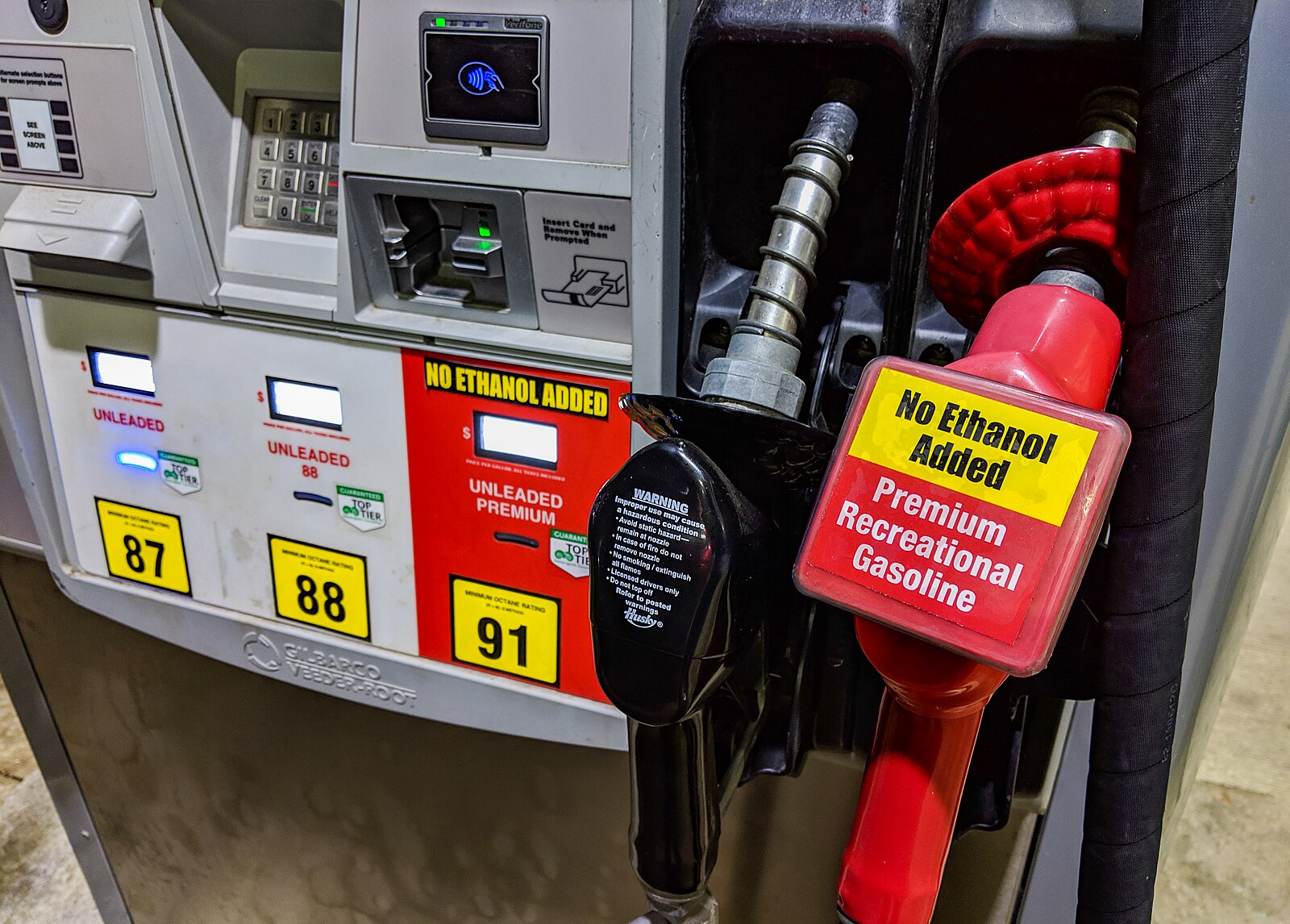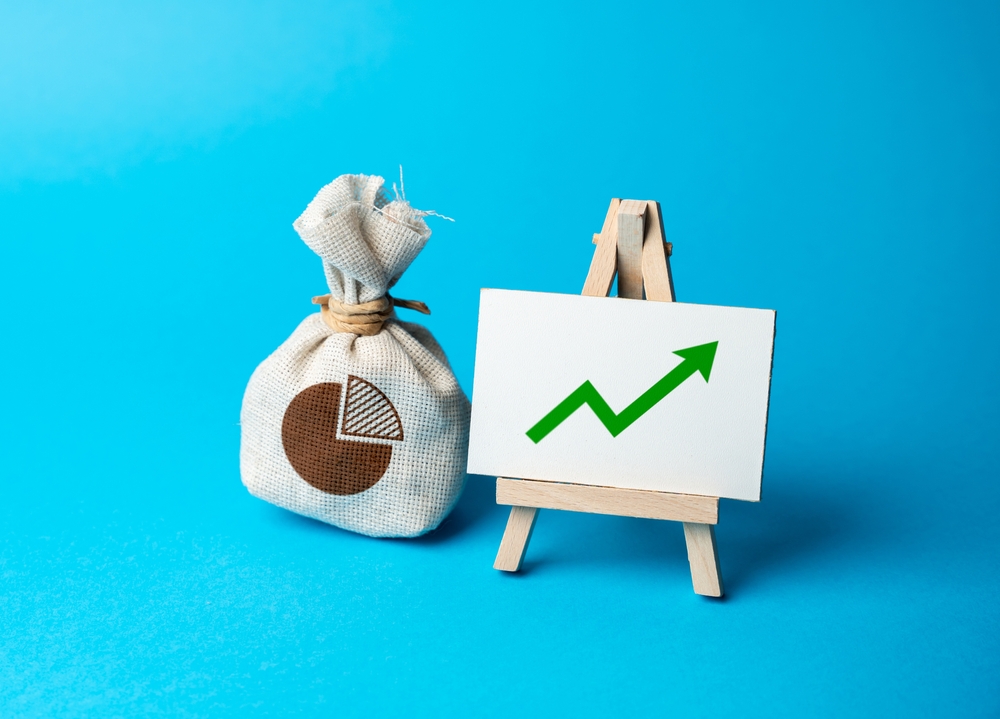Inflation is like that friend who shows up uninvited and eats all your snacks. It sneaks into your life, affecting your wallet and finances in ways you might not even notice at first. The rising cost of living has become a silent companion that can mess with your bank account if you’re not paying attention. Sure, wages might be increasing in some areas, but keeping up with inflation is like running on a treadmill that keeps speeding up. Let’s dive into how this invisible force is subtly reshaping your financial landscape.
1. Everyday Grocery Trips Are Sneakily Expensive

Remember when grocery shopping felt like a chore and not a financial decision? Inflation has made those weekly trips to the store more of a wallet workout than ever before. A key factor in this shift is the rising cost of producing and transporting goods, which naturally gets passed down to you, the consumer. According to recent research by the U.S. Department of Agriculture, food prices jumped significantly in the past year, squeezing budgets even tighter. While organic kale and imported cheeses were always pricey, now even basic pantry staples are making you reconsider that impulse buy of almond butter.
You might find yourself opting for store brands, buying in bulk, or even growing your own herbs just to keep the grocery bill down. Gone are the days of casually tossing an extra treat in your cart; now, it’s all about strategic planning and the dreaded mental math as you shop. Inflation is making you rethink what’s a need versus a want, even when it comes to food. And though clipping digital coupons might help, the overall impact is hard to ignore. The cost of keeping the fridge stocked is a clear reminder of how inflation can subtly but steadily drain your bank account.
2. Dining Out Feels Like A Splurge

Once upon a time, dining out was a spontaneous treat, a way to unwind without the hassle of cooking and dishes. Now, it feels like an event that requires financial planning and maybe even some guilt afterwards. Menu prices have gone up to cover rising food and labor costs, which means your go-to takeout place might cost as much as a sit-down restaurant did a few years ago. This shift subtly invites you to reconsider how often you indulge in this small luxury, nudging you toward more home-cooked meals.
What used to be a casual weekly outing is now something saved for special occasions or when you have a solid justification. Inflation makes you ponder if the convenience is worth the premium, and perhaps it even pushes you to discover your inner chef. This change in habit can save you money, but the trade-off is the occasional longing for the social and culinary experience of eating out. Dining out has morphed from a carefree choice to one that affects your financial priorities more than ever. It’s another example of how inflation quietly forces a shift in how you manage your money.
3. Streaming Subscriptions Are Getting Pricier

Remember when cutting the cable cord was hailed as a revolutionary money-saver? Streaming services offered a buffet of entertainment choices at a fraction of the cost. But inflation hasn’t spared your cozy nights in; those monthly fees have been creeping upward, often without much notice. According to a report by Deloitte, subscription services have increased by an average of 15% over the past year, meaning your entertainment budget may require some trimming. As each streaming platform battles for exclusive content, you’re left to decide which ones are worth the dent in your bank account.
This rise in costs may push you toward consolidating your subscriptions or even sharing accounts with friends or family, though the latter can come with its own set of complications. As much as you love having a variety of shows and movies at your fingertips, the overall expense can make you wonder if a library card might be a cheaper form of entertainment. Perhaps you’ll find yourself revisiting old DVDs or exploring free streaming options to keep costs at bay. Inflation’s quiet impact on your streaming habits highlights how these small changes add up, subtly impacting your financial picture. So, the next time you settle in for some binge-watching, remember you’re not just investing time, but also evaluating your financial priorities.
4. Utilities Are No Longer An Afterthought

Paying your utility bills used to be a mindless part of adulting, but inflation has turned it into an exercise in budgeting finesse. Rising energy costs mean that keeping the lights on and the house warm now takes a bigger chunk of your paycheck. What was once a predictable expense has become a variable one, challenging you to reconsider your energy use habits. Whether it’s turning down the thermostat a notch or investing in energy-efficient appliances, inflation nudges you to become more conscious of your consumption.
This financial adjustment also inspires a newfound interest in new technology and renewable energy sources, as people look for ways to cut costs in the long run. Solar panels and smart home systems might start to look more appealing, even if they require an initial investment. The monthly dance with your thermostat becomes more of a strategic maneuver than a simple comfort choice. Inflation’s subtle hand is evident every time you hear the furnace kick on or watch the water meter spin. Adjusting to these changes is all about finding a balance between comfort and cost, a challenge that many are now facing head-on.
5. The Cost Of Housing Is Climbing

Housing is often the biggest line item in a budget, and inflation is only driving those numbers higher. Whether renting or buying, you’ll find the market less forgiving as prices rise and the availability of affordable options dwindles. In an article by Zillow, it was noted that median home prices have increased by over 10% in the last year, impacting both potential homeowners and renters. This trend forces people to be more strategic about where and how they live, potentially leading to longer commutes or shared living spaces.
Even if you’re not in the market for a new home, rising property taxes and maintenance costs are likely tightening your financial belt. This inflation-driven squeeze might also lead to reconsiderations of downsizing or exploring alternative housing options. Those who have managed to secure a fixed-rate mortgage might feel some relief, but the ripple effects are hard to avoid completely. The pressure of rising housing costs is a poignant reminder of how inflation infiltrates everyday life in ways that are both visible and hidden. It’s a significant factor in your financial strategy that can dictate major life decisions.
6. Healthcare Expenses Are On The Rise

Healthcare costs have always been a point of concern, and inflation is only adding fuel to the fire. Premiums, copays, and prescription costs are rising, lessening the accessibility of healthcare for many. This financial pressure might prompt people to skip routine check-ups or delay necessary treatments, potentially leading to more significant health issues down the road. You’re left weighing the immediate financial hit against the long-term benefits of preventative care, a tough decision shaped by rising costs.
The rising expense of healthcare also encourages a closer examination of insurance plans and benefits, leading some to opt for high-deductible plans or to seek out supplemental insurance. While employers might offer some support, the gap between what’s covered and what’s owed out of pocket can widen, causing financial stress. Budgeting for potential medical expenses becomes a more significant part of financial planning, with emergency funds needing a boost to account for these variables. As these costs quietly climb alongside inflation, the importance of healthcare in your financial landscape becomes even more pronounced. It’s a sobering reminder of how inflation impacts not just your wallet, but your well-being as well.
7. Transportation Costs Aren’t Idling

If you commute or drive regularly, you’ve likely noticed that even a quick trip to the gas station feels more like a strategic mission. Fuel prices have been climbing, and according to the International Energy Agency, this trend is expected to continue as global demand rebounds. As a result, people are finding themselves more conscious of their driving habits, planning routes more carefully, and even considering carpooling or public transportation. The soaring cost of fuel also has a domino effect, influencing the price of goods transportation and therefore the costs at your local stores.
It’s not just gas prices that are on the rise; car maintenance and public transit costs are also feeling the squeeze of inflation. This might lead you to reconsider the need for frequent travel or the viability of your current vehicle. Perhaps an electric or hybrid car has moved up on your wishlist, or you’re looking into cycling or other alternatives for short distances. The ripple effect of elevated transportation costs serves as yet another example of how inflation quietly influences everyday decisions. This seemingly small change can significantly impact your budgeting and lifestyle choices.
8. Savings Accounts Aren’t As Rewarding

Saving money for a rainy day feels less fruitful when the interest rates on savings accounts aren’t keeping pace with inflation. Even if you’re disciplined about putting money aside, it’s discouraging to see your savings’ purchasing power diminish over time. While interest rates are slowly starting to climb, they often lag behind inflation, meaning your money isn’t working as hard as it could be. This financial environment pushes people to explore alternative savings vehicles, like high-yield accounts or investment opportunities, to maintain or grow their wealth.
The changing landscape means that simply setting money aside isn’t enough; it requires more savvy decisions to make sure your savings keep pace with rising costs. It might lead you to brush up on financial literacy, perhaps exploring stocks, bonds, or other investment opportunities that offer better returns. This shift in strategy comes with its own risks and learning curves, but it’s increasingly necessary to protect your financial future. Inflation’s impact on savings is a quiet reminder that money management often requires evolution and adaptability. The challenge is to ensure your savings grow and don’t just sit in an account losing value.
9. Vacation Planning Requires More Calculations

The excitement of planning a getaway now comes with a side of financial stress, as inflation impacts travel budgets. Hotels, flights, and even local attractions have all bumped up their prices, sometimes making that dream vacation feel out of reach. This forces you to get more creative with your travel plans, seeking out bargains, off-peak rates, or maybe even considering staycations. Inflation’s impact on travel doesn’t just influence your destination choices, but also how you prioritize spending once you get there.
Some people find themselves cutting back on souvenirs, dining, or experiences that once felt like essential parts of traveling. This trend means that vacations now require more meticulous planning to ensure they stay within budget while still delivering the relaxation or adventure you seek. Inflation’s subtle hand in altering travel habits is a reminder of how it infiltrates even the most joyous parts of life. It’s a challenge to balance financial constraints with the desire to explore and unwind, making vacation planning more complex than ever.
10. Higher Education Costs Are Soaring

Education has always been a significant investment, but inflation is making it an even steeper hill to climb. Tuition fees and associated costs like textbooks and housing have risen, adding pressure to an already hefty financial commitment. This financial challenge may push people to explore community colleges, online courses, or alternative education paths to mitigate costs. While student loans can help bridge the gap, they also extend the financial burden well into the future, making return on investment a critical consideration.
Those already in the workforce might seek employer-sponsored education benefits or professional development programs to keep advancing without the added financial strain. Inflation’s impact on education underscores the importance of strategic financial planning and weighing the costs versus benefits. It’s a reminder of how even the pursuit of knowledge and growth isn’t immune to economic pressures. Navigating this landscape requires careful consideration of educational paths and financial resources, ensuring that the investment in education remains a viable pathway to future success.
11. Insurance Premiums Are Creeping Up

Insurance policies used to feel like a safety net, but inflation is turning them into a more expensive necessity. Premiums for health, auto, and home insurance are climbing, reflecting rising costs in claims and overall risk. This surge makes it crucial to regularly review your policies, comparing options to ensure you’re getting the best coverage for your money. People might be inclined to increase deductibles or adjust coverage to maintain affordability, but that comes with its own set of risks.
The growing expense of insurance can prompt a deeper dive into understanding terms and conditions, as well as exploring bundling options for cost savings. Inflation’s subtle pressure on premiums makes this once-set-and-forget expense a more active part of financial management. It’s a reminder to weigh the cost against the peace of mind insurance is designed to provide. As premiums rise, the importance of making informed choices about coverage and potential risks becomes even more critical.
12. Tech Gadgets Aren’t Immune Either

Inflation doesn’t discriminate, and even the tech world isn’t immune to its effects. The prices of gadgets like smartphones, laptops, and tablets are climbing, reflecting increased production costs and supply chain challenges. This rise in tech costs can make you more discerning about upgrades and purchases, possibly extending the lifecycle of your current devices. People might find themselves shopping around more diligently, comparing features and prices to ensure they’re making financially sound decisions.
The increasing cost of tech also encourages a look into refurbished or second-hand options, making high-quality technology more accessible without the premium price. Inflation’s impact in this arena highlights how consumer habits adapt in response to external economic pressures. It’s a reminder that even the most desired and cutting-edge gadgets are subject to the same financial constraints as everyday essentials. With careful planning and strategic purchasing, it’s still possible to enjoy the benefits of technology without overstretching your budget.
13. Childcare Costs Are Outpacing Incomes

For families, childcare is an essential service, but inflation is making it an increasingly costly one. Daycare centers, after-school programs, and even babysitters are all feeling the pressure of rising operational costs, which get passed on to parents. This increase can lead to reevaluating work-life balance, with some people considering adjustments to work schedules or even remote work options to curb childcare expenses. Inflation’s impact on childcare underscores the complex financial decisions families must navigate to ensure quality care without breaking the bank.
The climbing costs also encourage a closer look at government programs or employer benefits that might offer some relief. For some, it might mean a shift toward shared caregiving arrangements with family or friends, adding another layer to the already complex childcare puzzle. Inflation’s reach into the realm of childcare highlights the broader economic forces at play in everyday family life. It’s a reminder that financial strategies must evolve to accommodate shifts in essential service costs while maintaining the well-being of the family unit.
14. Retirement Planning Feels A Bit Rockier

Inflation casts a long shadow over retirement planning, adding complexity to an already challenging task. As the cost of living increases, so too must the funds allocated to ensure a comfortable retirement, yet wages and interest rates don’t always keep pace. This financial dynamic can make you rethink your retirement strategy, potentially delaying retirement age or increasing contributions to retirement accounts. Inflation’s impact on retirement is a reminder of the ripple effect it has on long-term financial goals.
For those nearing retirement, it might mean reassessing expected retirement income and making necessary adjustments to lifestyle projections. Younger savers might feel the pressure to start earlier and save more aggressively, potentially exploring a mix of investment options to protect against inflation. The challenge is balancing present-day expenses with future needs, a delicate act that inflation makes even more intricate. Inflation serves as a nudge to regularly revisit and adjust retirement plans, ensuring that future financial security remains within reach despite rising costs.
This article is for informational purposes only and should not be construed as financial advice. Consult a financial professional before making investment or other financial decisions. The author and publisher make no warranties of any kind.








